Search Results
Showing results 321 to 340 of 398
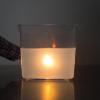
Blue Sky
Source Institutions
In this optics activity, learners explore why the sky is blue and the sunset is red, using a simple setup comprising a transparent plastic box, water, and powdered milk.
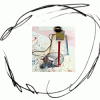
Cup Draw
Source Institutions
In this activity, learners construct drawing machines using a cup, some markers, and a cricket to control the movement. A programmed LEGO RCX or Cricket is required for this high-tech version.
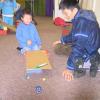
Exploring Ramps
Source Institutions
This guide features three related ramp explorations in which learners investigate the following science concepts: when placed on a ramp, some objects roll, others slide, and others stay put; the shape
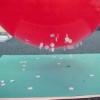
History of Electricity
Source Institutions
This is a series of demonstrations about different electrical and magnetic phenomena.
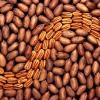
Energy Sources
Source Institutions
In this activity about the relationship between food and energy (page 5 of PDF), learners conduct an experiment to compare how much energy is released as heat from two different foods.

Pollution Diffusion
Source Institutions
Learners design their own experiment to investigate how pollution diffuses through ground material.
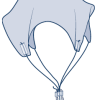
Sky Diver
Source Institutions
Students design and build their own parachutes in this hands-on engineering project.
Ships Ahoy!
Source Institutions
Design a vessel that tests the limits of wind power given a set of off the shelf and recycled materials.
Plants: Hanging Tough
Source Institutions
In this hands-on activity, learners will become familiar with the special adaptations of rainforest plants and discover the conditions needed for tropical trees to survive along with what can impinge
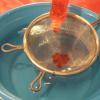
Molecular Gastronomy: Use Self-Assembly to Make a Dessert Topping
Source Institutions
Molecular gastronomy is the scientific study of food preparation. Learners use self-assembly techniques to create edible capsules of chocolate syrup (food grade ingredients are required).
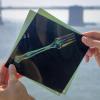
Bone Stress
Source Institutions
In this optics activity, learners examine how polarized light can reveal stress patterns in clear plastic.

What does Color have to do with Cooling?
Source Institutions
In this demonstration/experiment, learners discover that different colors and materials (metals, fabrics, paints) radiate different amounts of energy and therefore, cool at different rates.
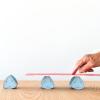
Non-Round Rollers
Source Institutions
Wheels aren't the only things that can "roll" objects that are placed on top of it. Make non-intuitive shapes from cutouts and a compass to demonstrate this.
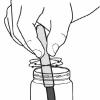
Salting Out
Source Institutions
In this activity, learners create a mixture of water, alcohol and permanent marker ink, and then add salt to form a colored alcohol layer on top of a colorless water layer.
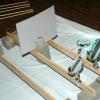
Glass and Mirrors: An Inside Look at Telescopes
Source Institutions
This hands-on astronomy activity allows you to create a “cutaway” telescope to clearly show how reflector and refractor telescopes work.
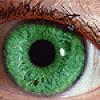
Our Sense of Sight: Eye Anatomy and Function
Source Institutions
In this activity, learners investigate the sense of sight and develop and conduct their own experiments.
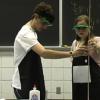
That's the Way the Ball Bounces: Level 3
Source Institutions
In this activity, learners prepare four polymer elastomers and then compare their physical properties, such as texture, color, volume, density, and bounce height.

See the Light
Source Institutions
Learners mix a solution of luminol with hydrogen peroxide to produce a reaction that gives off blue light.

Statue Display Tower
Source Institutions
In this activity, learners design, build, test and redesign a display tower that will meet a specific set of criteria and constraints.
Leaves: Extracting Pigments
Source Institutions
In this fun, hands-on autumn activity, learners experiment to discover whether the colored substances in leaves can be separated from the leaves.
